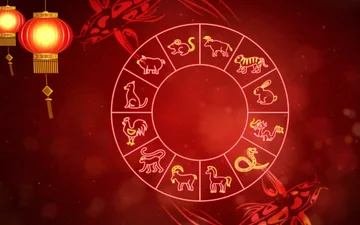
New day, a new term for online relationships. It's time to get acquainted with "relationship anarchy." According to Feeld, the popular dating app, which unlike other platforms, is for people with fetishes or kinks (The word "kink" is usually used to describe a sexual preference or desire that falls outside of traditional norms. It can include acts, roles, or situations that an individual finds erotically stimulating, but that are not always part of "typical" sex that society considers normal) , as well as for those who practice non-monogamous relationships.
Feeld published a report on dating and it seems that "relationship anarchy" is a pretty common style. Anarchy, in this case, is a non-traditional relationship style that rejects social norms and encourages creating relationships on your own terms.
"Relationship anarchy" is a unique and complex philosophy of building relationships, in which you actively and intentionally engage, based on the political principles of anarchy. Feeld found that after people were introduced to the definition of relationship anarchy, 50% of app users and 20% of non-Feeld users reported that they were already practicing this style before they knew there was a term for it.
What is "relationship anarchy"?
The term was coined by Andie Nordgren in a 2006 pamphlet (later published online). “Relationship anarchy” is a relationship style where there are no rules or expectations, other than those set by the individuals in the relationship themselves. Essentially, it throws aside society’s traditional ideas about relationships and defines them on your own terms, with your partner or partners.
“Relationship anarchy is a philosophy where people follow their core values ??to create personalized arrangements for relationships, rather than relying on societal norms,” says Dr. Heath Schechinger. “People who embrace this approach typically value autonomy and practice a lack of hierarchy in relationships.”
Nordgren’s initial manifesto for relationship anarchy includes nine principles, which can be personalized by those who practice it. These include ideas such as: “Love and respect instead of the right to control,” which implies that feelings or history with someone do not give you the right to control that person; “Trust more,” which suggests that instead of seeking validation from your partner to feel secure in his or her feelings for you, you should choose to trust that they do not want you to do wrong and may simply have other priorities.
A key tenet of this typology is the abandonment of any kind of hierarchy, namely the idea that one romantic relationship is more important than any other relationship. “It is based on the idea that love is enough and not a limited resource that must be carefully shared,” says Dr. Donna Oriowo, a relationship therapist.
Why is communication so important in this type of relationship?
Communication is essential in any relationship, but in "relationship anarchy" it's vital because it builds the relationship from the ground up. You need to clearly express your needs, boundaries, and expectations.
“The more people involved, the greater the need for clear and healthy communication,” adds Dr. Schechinger.
In traditional relationships, expectations often become assumptions, which lead to resentment, hurt, and separation. This relationship style requires you to avoid falling into this cycle, but to speak up from the start.
Communication with people outside the relationship can also be important, especially if you feel misunderstood. “You may be going against what society considers ‘proper,’ and that can trigger backlash from family or friends,” says Oriowo.
But remember: the way your relationship looks is yours alone.
How to practice it?
If you’re curious about “relationship anarchy” and feel ready to give it a try, you can get started. If you’re already in a relationship, start by having some honest conversations. What kind of relationship do you and your partner want to create? Monogamous or not? Open? Getting married? Having kids? Living together? These are important questions, and the answers may change over time.
“Couples should expect their relationship to change and understand that change is not a bad thing,” says Dr. Schechinger.
Suggested articles:




